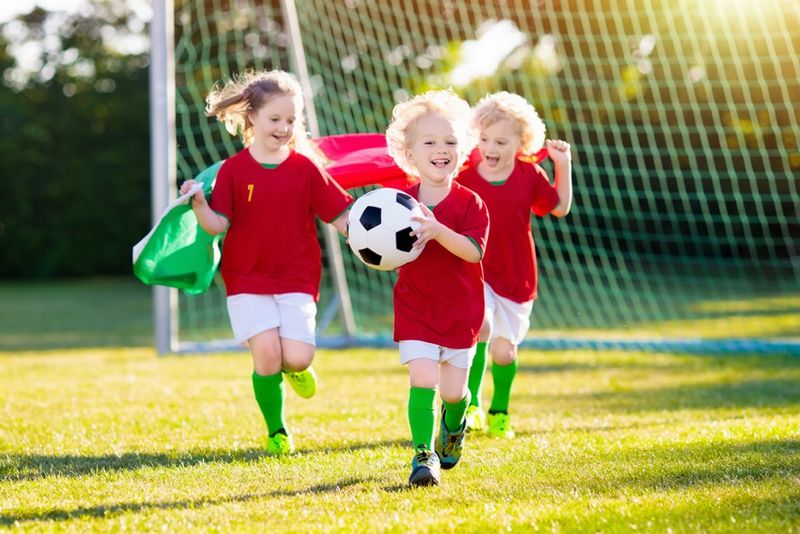It seems that some people in America would prohibit or do away with any sport or game that selects sides, and the result might establish a”winner” or”loser”. They say that by eliminating such things from the kids, we’re protecting our children’s psyches, and they won’t be”hurt” because their team lost. Let us project this”non-competitiveness” to the business environment when our kids are adults and out by themselves.
When another partner is encouraged or given a raise, and they’re not, how will they deal with the explanation they aren’t aggressive enough or learn that simply showing up Games and sports offer invaluable lessons in a child’s development. From learning how to play with other kids on a group, to create a personality that’s gracious in both winning and losing.
Games and sports teach principles and the requirement to watch and follow them. Learning the principles teaches children that there are consequences: three strikes and you are outside, five fouls and you need to sit on the seat if you’re hit by the ball at dodge ball you’re from the game.
Most of us must live by the rules, whether we like to outcome or not. So, what else besides learning about rules and playing honest do games and sports provide our kids? Something often overlooked is that so as to improve and succeed in the game or game as well as in life, kids have to learn how to practice. This implies not only showing up to the team clinics. They should master the small things of this game or game.
You often hear the criticism” I show up for training twice per week, and the coach needs me to do more work outside of exercise! ” If the game is basketball for example, rarely does a coach have time during training to work on foul shots, left-handed layups, or ball-handling skills. These are examples of basic aspects of the game or game which will need to be mastered in order to proceed to another level.
The practice isn’t a once in a while activity. Throughout life, we’re always challenged to learn new procedures and ways of doing things. Games and sports teach us to work on and master basic actions on our own and to master a skill it should be replicated over and over again. Is there anything else matches and sports can promote a child’s development? Many children’s associations have eliminated”keeping score” in the younger age groups.
After one of those games, ask any participant from both teams, who won? The players know and they’ll tell you fairly accurately what the last score was. Throughout one’s life, there’ll be times when, despite one’s best efforts, you lose. You are discharged from the job because of downsizing. Losing can be a devastating thing for players and people of all ages!
It’s what one does after the loss that determines the quality of the person. By engaging in games and sports, your kids can learn life’s lessons. Following a loss, the world keeps turning, the sun still rises, and what’s more, they get to play again! Children can get a view from games and sports, which despite losing, there’s a tomorrow, and they can have an effect on it.
Although not the last word or idea on this subject, the previous item for this guide is the joy and memories which matches and sports provide kids. The feeling of camaraderie, creating new friendships and trying for the next level. These remain with you long past your memory of the final scores. Working to enhance your skills and abilities can be used every day of your life, why not begin learning as early as possible?
Jim is passionate about the need to maintain games and sports in children’s lives. Competition isn’t the evil Darth Vader some groups are painting it as. He receives more satisfaction from seeing a team grow and exhibit the basics of the game, moving as a team, than winning the contest.
